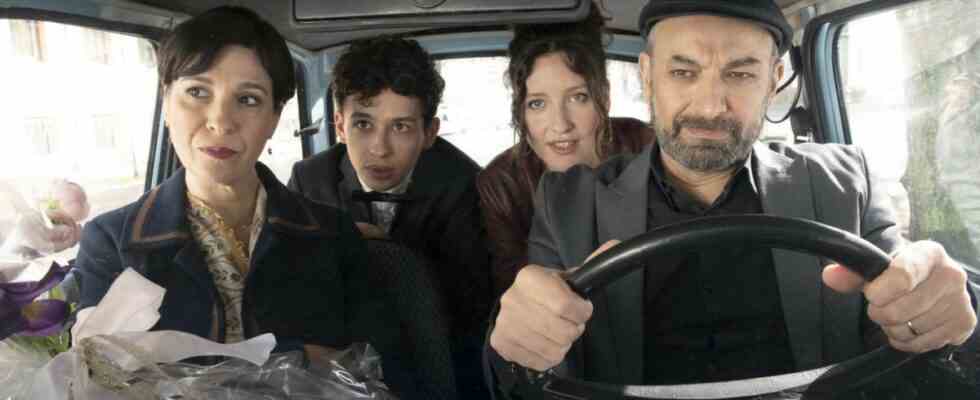How to eat Algerian dates? You have the date and a bit of milk in your mouth, you chew and mix before you swallow. “It’s delicious,” explains Lamia’s father, Said. How to eat dates learned from him. If only he were just as helpful in finding an apartment.
The young Muslim woman is looking for an apartment in Berlin, and as if that weren’t difficult enough with an Algerian surname, her father is anything but enthusiastic about the fact that Lamia wants to leave her parents’ home at the age of 25. Even when she takes him to meet the residents of a Muslim women’s shared flat, he can’t give in to the idea one bit. So Lamia, her gloomy-looking father and her uncle, whom she took with her as moral support, sit across from the two residents in their summery garden at the set table. Not an everyday WG casting, especially since a dispute quickly ignited between Lamia and Said and with it the basic conflict of the ARD series lamia.
With every change that Lamia initiates, the family dynamic jerks a little more
In almost 20-minute episodes, the series tells with lightness and humor about the big and small dramas in Lamia’s life and her search for identity as a German-Algerian Muslim woman in Berlin. lamia illuminates injustices that so-called “third culture kids” are confronted with from all sides. “Third Culture Kid” is what Nilgün Akinci calls the character Lamia, meaning children of two cultures that combine them into a new one. Akinci acted as a consultant for the series and was supposed to ensure the authenticity of the religious elements in the series as a cultural scientist and “practicing Muslima”.
Perspectives like that of Lamia as a “Third Culture Kid” still rarely find their way onto German television and that’s why the series is worth seeing – even if some scenes come across as silly. For example, when Lamia prays in a very casual way, i.e. talks to Allah as if he were sitting across from her in the children’s room, but keeps apologizing to read text messages on her cell phone, the modern hint is very clear. And the point mau. Other scenes are successful because they are unobtrusively funny: Lamia reads the Koran in the yellow Reclam notebook and – a hard-working student that she is – makes notes in the margins. Forbidden, as her mother realizes with horror when she finds it: You shouldn’t question the Koran.
Over the course of the series, Lamia tries to bring together her religion, her desire for freedom, love and the strictness of her family. With every change she initiates, the family dynamic jerks a little more. The dialogues also stutter a bit, seem stilted here and there, but that’s what you’re used to from German television. On the other hand, it sounds wonderfully charming when Said asks his daughter emotionally a little awkward but forgiving at the garden table: “What do you feel in your heart?” Instead of: “What are you thinking now?” And she replies: “Just normal things.”
lamiafrom Monday 14 November, 9.35 p.m. on ARD One and in the ARD media library.

